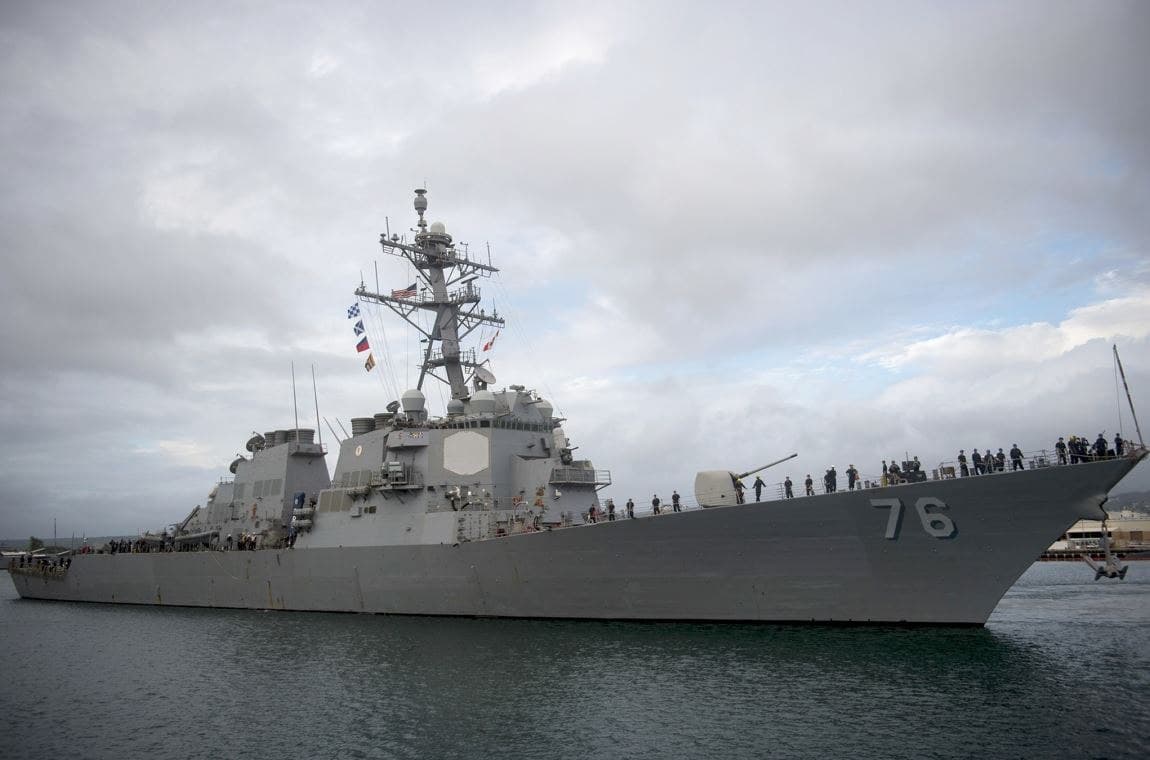China Expels USS Higgins from Scarborough Shoal, Sparking Sovereignty Clash
In a significant escalation of tensions in the South China Sea, China has reported that it "monitored and expelled" the USS Higgins, a Burke-class destroyer, from the contested waters near Scarborough Shoal. This incident marks the first U.S. naval operation in the area in six years and has drawn sharp condemnation from Beijing, which asserts that the U.S. presence constitutes a violation of Chinese sovereignty. As of now, the United States has not issued a public response to the claims made by China.
Background & Context
The Scarborough Shoal, located approximately 120 nautical miles from the Philippine coast, has long been a flashpoint in the South China Sea disputes, with claims from multiple nations including China, the Philippines, and Vietnam. This area is not only strategically significant due to its rich fishing grounds and potential oil reserves but also serves as a vital maritime route for global shipping. The previous U.S. military operation in this region was reported in 2017, highlighting the long-standing tensions and the fluctuating nature of U.S. military engagement in the area.
China"s assertive actions in the South China Sea have increasingly come under scrutiny from various international observers. The Chinese government considers the South China Sea, including Scarborough Shoal, as part of its sovereign territory, a stance not recognized by several Western nations and regional neighbors. This incident underscores the ongoing geopolitical contest between the U.S. and China, especially in light of recent military maneuvers by both nations in the Indo-Pacific region.
Key Developments
The expulsion of the USS Higgins was announced by the Chinese Ministry of Defense, which characterized the U.S. naval presence as an infringement on China"s territorial integrity. A spokesperson for the ministry stated that the Chinese military "will continue to take all necessary measures to safeguard national sovereignty and security." This declaration reflects China"s broader strategy to assert its claims over the South China Sea, particularly against the backdrop of increasing U.S. naval operations in the region.
While the U.S. has not yet commented on this specific incident, Washington typically maintains that its naval operations are conducted under the principle of "freedom of navigation," a key tenet in international maritime law. The absence of a U.S. response at this stage raises questions about the potential ramifications for U.S.-China relations, particularly as both nations navigate a complex diplomatic landscape marked by competition and confrontation.
Broader Impact
The implications of this incident extend beyond the immediate confrontation. Experts suggest that the U.S. Navy"s return to Scarborough Shoal may signal a renewed commitment to countering China"s expansive territorial claims in the South China Sea. As previously reported, similar situations have arisen in the past, with both sides engaging in tit-for-tat military posturing that risks escalating into broader conflicts.
Moreover, this incident could influence regional dynamics, particularly among Southeast Asian nations that have vested interests in the South China Sea. Countries like the Philippines, which has a mutual defense treaty with the U.S., may feel emboldened to assert their claims in the face of Chinese aggression. Conversely, it could also lead to increased pressure on these nations to navigate their relations with both powers carefully, balancing national interests with regional stability.
What"s Next
As tensions simmer, analysts are closely monitoring the potential for further military encounters in the South China Sea. The U.S. Navy may increase its operations in the region as part of its strategy to ensure freedom of navigation, while China is likely to enhance its military presence to deter perceived U.S. provocations. This dynamic could lead to a cycle of escalation, as both nations seek to assert their dominance in a region critical to global trade.
Furthermore, diplomatic efforts may be necessary to mitigate the risk of conflict. Regional multilateral forums, such as ASEAN, could play a pivotal role in facilitating discussions among claimant states to address grievances and seek peaceful resolutions. As the situation develops, stakeholders will be watching closely for any shifts in policy or military strategy that could reshape the landscape of the South China Sea.


![[Video] Heavy clashes and gunfire reported in Baghdad, Iraq](/_next/image?url=%2Fapi%2Fimage%2Fthumbnails%2Fthumbnail-1768342239932-848qsh-thumbnail.jpg&w=3840&q=75)




![[Video] Gunfire between Iraqi security forces and Sadr militias in Baghdad](/_next/image?url=%2Fapi%2Fimage%2Fthumbnails%2Fthumbnail-1768343508874-4redb-thumbnail.jpg&w=3840&q=75)
